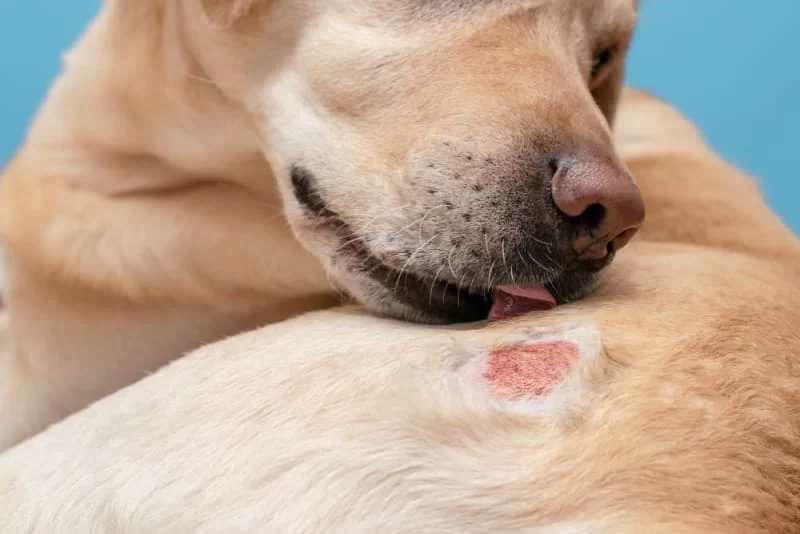What Are the Common Skin Problems in Dogs and How to Treat Them?
- Why Dog Skin Problems Matter
- Common Dog Skin Conditions
- Signs and Symptoms of Skin Problems in Dogs
- Treatment Options for Dog Skin Issues
- How to Prevent Skin Problems in Dogs
- Get Professional Help from Hidden Brook Veterinary
1. Why Dog Skin Problems Matter
Skin issues in dogs can be more than just a minor irritation. If left untreated, they can lead to serious infections, hair loss, and discomfort. Identifying and treating these problems early can prevent unnecessary suffering for your pet.
2. Common Dog Skin Conditions
Dogs can suffer from various skin conditions, including:
- Allergies: Dogs can be allergic to pollen, food, or household chemicals, leading to itchy, inflamed skin.
- Flea Allergy Dermatitis: Flea bites cause severe itching and skin irritation, even if fleas are not visible.
- Mange: Caused by microscopic mites, mange leads to hair loss, redness, and intense itching.
- Hot Spots: These are moist, red, inflamed patches caused by excessive licking or scratching.
- Bacterial and Fungal Infections: Bacterial skin infections (pyoderma) and fungal infections like ringworm can cause skin irritation, hair loss, and scabbing.
- Dry Skin: A lack of humidity or essential fatty acids in a dog’s diet can lead to flaky, itchy skin.
3. Signs and Symptoms of Skin Problems in Dogs
Dogs with skin issues may exhibit the following symptoms:
- Excessive scratching, licking, or chewing at the skin
- Redness, swelling, or inflamed patches
- Hair loss or bald spots
- Scaly or flaky skin
- Bad odor coming from the skin
- Open sores or crusty lesions
- Darkened or thickened skin in affected areas
If you notice any of these symptoms, a veterinary consultation is recommended.
4. Treatment Options for Dog Skin Issues
The treatment for a dog's skin problem depends on the underlying cause. Here are some common treatment approaches:
- Flea and Tick Control: Regular flea preventatives help prevent flea allergy dermatitis.
- Hypoallergenic Diet: Switching to a diet free from common allergens may relieve symptoms of food allergies.
- Medicated Shampoos: Special shampoos can help treat bacterial and fungal infections.
- Antibiotics and Antifungals: If an infection is present, a vet may prescribe oral or topical medications.
- Corticosteroids and Antihistamines: These help reduce inflammation and itching caused by allergies.
Always consult a vet before trying any treatments to ensure your dog receives the appropriate care.
5. How to Prevent Skin Problems in Dogs
Preventing skin problems is easier than treating them. Here are some key prevention tips:
- Regular Grooming: Bathing and brushing remove dirt, allergens, and loose hair.
- Healthy Diet: Feeding high-quality dog food with omega-3 and omega-6 fatty acids supports skin health.
- Flea and Parasite Prevention: Use vet-recommended flea preventatives year-round.
- Proper Hydration: Ensure your dog has access to fresh water to keep the skin hydrated.
- Routine Veterinary Checkups: Regular vet visits can detect early signs of skin problems.










